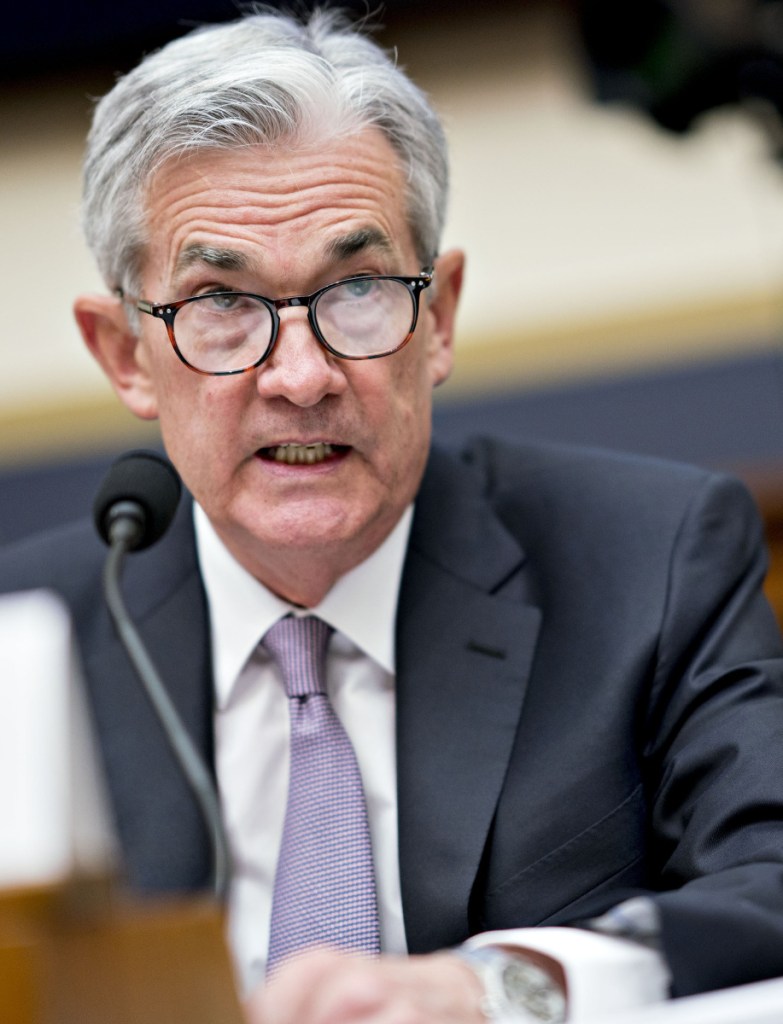WASHINGTON — The Federal Reserve Board on Wednesday took the first step toward loosening the Volcker Rule restrictions on investment trades by large banks as Republicans press forward with a deregulatory agenda sought by Wall Street.
The Volcker Rule, mandated by the 2010 Dodd-Frank reforms spurred by the financial crisis, prohibits banks with federally insured deposits from trading for their own profit rather than on behalf of customers. It also limits ownership of risky investments, such as relationships with hedge funds and private equity funds.
Such so-called proprietary trading by large Wall Street firms was a factor in the 2008 crisis as banks made risky bets on the market through stocks, derivatives and other complex financial instruments. When many of those investments backfired, taxpayers ended up picking up the tab through hundreds of billions of dollars in bailouts.
In revisions developed jointly with other regulatory agencies, the Fed’s staff proposed to focus compliance on the banks that do the most trading. Proprietary trading will still be prohibited, Fed officials stressed, but the revisions are designed to give banks more clarity and leeway about what constitutes such trading and what is allowed when they seek to trade for hedging and other purposes.
Banks with smaller trading operations would get reduced requirements, with many getting the presumption that they are in compliance with the Rule.
CHANGES FALL SHORT
Still, the changes fall well short of the hope of many Republicans and industry executives to repeal or gut the rule.
“Our goal is to replace overly complex and inefficient requirements with a more streamlined set of requirements,” Fed Chairman Jerome H. Powell said at the central bank’s board meeting Wednesday.
He said the proposed changes were “faithful to both the text and spirit of the law.”
The Fed’s Board of Governors voted 3-0 Wednesday to formally launch a rule-making process based on the proposal. The public will have a chance to comment.
Despite the bailouts, financial industry lobbyists have pushed back strongly against the Volcker Rule restrictions, which were enacted in 2013 after regulators from five agencies spent three years crafting them. They took effect in 2015.
Banks have complained that complying with the Volcker Rule has been overly burdensome. But that hasn’t stopped profits from soaring in recent years. The Federal Deposit Insurance Corp. reported last week that U.S. banks had a record $56 billion in profits in the first quarter of the year.
With a slew of new financial regulators appointed by President Trump, the Fed and other agencies that oversee the Volcker Rule have jointly developed a proposal to ease the rules.
“It will be among the most significant set of regulatory concessions Wall Street banks will get for the foreseeable future,” Ian Katz, an analyst at strategic research firm Capital Alpha Partners, wrote in a report this week.
VOLCKER WELCOMES EFFORT
Paul Volcker, who headed the Fed from 1979-87 and later advised President Barack Obama, said he welcomed “the effort to simplify compliance” with rule as long as it does not “undermine the core principle” of prohibiting taxpayer-backed banks from engaging in risky proprietary trading.
But supporters of Dodd-Frank warned that the changes could put taxpayers at risk for future bailouts.
“Given the irresistible riches generated by proprietary trading, it is inevitable that weakening the Volcker Rule will result in banks again pushing the envelope, gaming the system and ramping up their dangerous trading,” said Dennis Kelleher, president of Better Markets, a group that advocates stricter financial regulation.
Under the proposal, banks with trading operations of least $10 billion in assets would be required “to have a comprehensive compliance program.”
There are about 18 such banks and they account for about 95 percent of trading activities, Fed officials said.
Banks with between $1 billion and $10 billion in trading operations would have “reduced compliance requirements that would be tailored in light of their relatively smaller and less complex trading activities,” according to the Fed proposal.
Banks with trading operations of less than $1 billion would get “a rebuttable presumption of compliance with the rule,” the proposal said.
The proposal also would remove the presumption now in the Volcker Rule that any stocks, derivatives or other investments purchased by banks that they hold for less than 60 days are proprietary trades.
The proposal was drafted under the oversight of new Fed Vice Chairman Randal Quarles, a Trump appointee. Powell is a Republican who already was on the Fed board but picked to be chairman by Trump.
Fed Gov. Lael Brainard, a former Treasury official in the Obama administration and a strong supporter of Dodd-Frank, also voted for the proposal.
“While the purpose of the Volcker Rule is compelling, our experience with its implementation suggests the inter-agency rule has turned out to be needlessly cumbersome in practice,” she said.
Send questions/comments to the editors.



Success. Please wait for the page to reload. If the page does not reload within 5 seconds, please refresh the page.
Enter your email and password to access comments.
Hi, to comment on stories you must . This profile is in addition to your subscription and website login.
Already have a commenting profile? .
Invalid username/password.
Please check your email to confirm and complete your registration.
Only subscribers are eligible to post comments. Please subscribe or login first for digital access. Here’s why.
Use the form below to reset your password. When you've submitted your account email, we will send an email with a reset code.